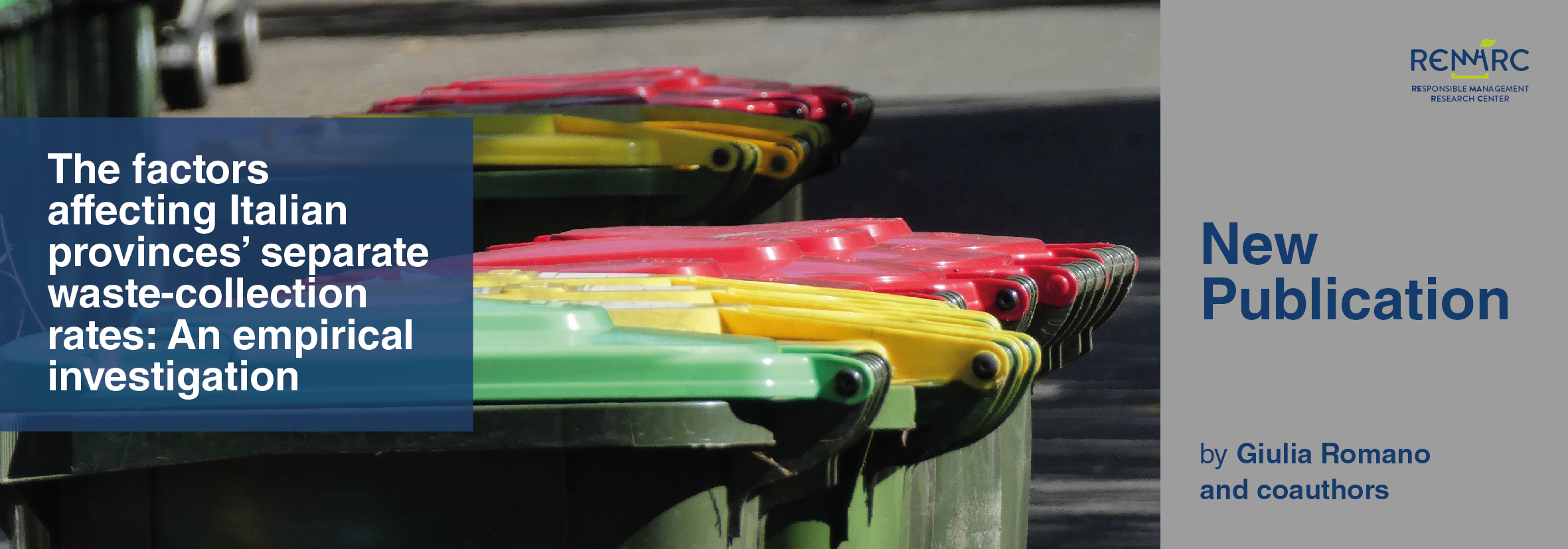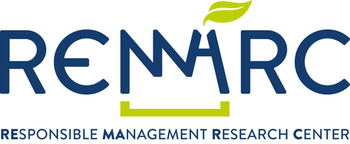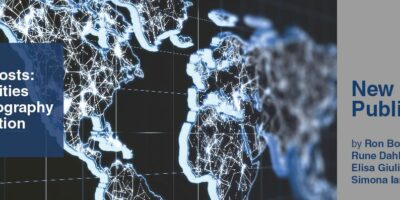The factors affecting Italian provinces’ separate waste-collection rates: An empirical investigation

A new publication by Giulia Romano and co-authors published in Waste Management.
The factors affecting Italian provinces’ separate waste-collection rates: An empirical investigation
Abstract
This paper investigates the factors affecting Italian provinces’ separate collection rates from 2007 to 2016, as these rates are relevant environmental performance indicators in urban waste management. The authors observe data spanning this decade from 103 Italian provinces and use panel data regressions to explore if and how some relevant socio-economic factors—including convictions for crimes committed against the public administration and many indicators of equitable and sustainable well-being that describe the quality of life in Italy—significantly affect provinces’ capability to reach European and national regulators’ separate collection rate targets. The results reveal that the greater the prosecuted crime committed against the public administration, average income, expected age, number of people with a diploma or a degree, and the percentage of female municipal administrators, the greater the separate waste collection rate. In contrast, the greater the number of household members, youth employment rate, total waste produced per capita, and the recourse for landfills, the lower the separate waste collection rate. These results highlight for policy-makers and waste utility managers the need to implement different strategies to increase the ability to meet expected targets and increase environmental performance, and thus, further increasing the quality of life.
The article is available online here.



